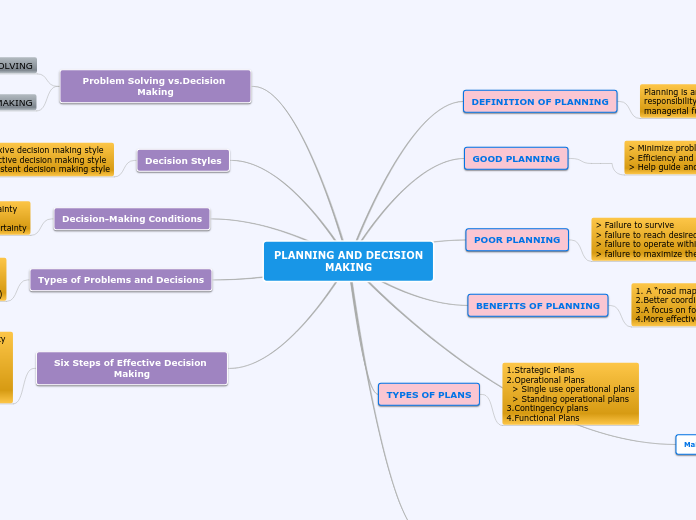von najwa yaakub Vor 6 Jahren
385
PLANNING AND DECISIONMAKING

von najwa yaakub Vor 6 Jahren
385

Mehr dazu
> Formally prepared > Factual, logical and realistic > Planning may cover a long-term or short-term period.